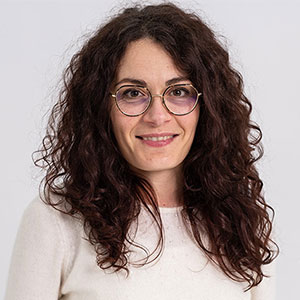Dr Monia Del Pinto – Connecting Built Environment Disciplines and Geography in Urban Risk Research: Reflections from an IAS Fellowship

Urban resilience research demands interdisciplinary dialogue, particularly where the built environment interacts with human experience, influencing spatial cultures, people’s wellbeing, and even safety. As an interdisciplinary researcher working on disaster risk and the built environment, my interest in how architectural form and urban landscape influence resilience led to an ongoing collaboration with Dr. Sara Bonati, assistant professor in human geography at the University of Genova. Together, we started exploring the sensory dimensions of urban environments (sensescapes) and their role in shaping risk communication and post-disaster recovery.
In October 2024, I had the pleasure of hosting Sara at Loughborough University as a Research Fellow through the IAS Open Programme. Her week-long visit was a valuable opportunity to advance our shared research and proved to be an incredibly rich and productive experience. The IAS team provided an ideal setting for in-depth dialogue, collaborative planning, and meaningful engagement with colleagues across disciplines.
Over the years, Sara and I have been working together on topics at the intersection of architecture, geography, urban studies, and disaster studies, focusing on sensory landscapes and risk communication, post-disaster urbanism, and architecture-led place branding in disaster-affected contexts. The IAS Open Programme visit gave us a chance to take that collaboration further, and in person, supported by the brilliant IAS team, who provided space, resources, and great visibility to the event.

During her visit, Sara delivered a presentation on (re)production of nature in climate change discourse, bringing together Loughborough University colleagues from across geography, architecture, engineering, and the social sciences, and was followed by an insightful informal discussion. The interdisciplinary conversations prompted reflections on ways nature is used, re-used, represented, and re-conceptualised in the ongoing climate change debate, focusing on emerging trends in place-making in a time of escalating climate threats and the impact on ecosystems and non-human actors. The cross-disciplinary lens prompted the audience to think differently about our discipline-specific assumptions and approaches.
The visit enabled us to develop a funding application to support a Europe-wide research network, finalise a collaborative paper, and sharpen our joint research strategy for the next couple of years. It also gave us the space to envision future projects and reflect more deeply on where research on climate change and risk reduction requires cross-disciplinary and cross-sector collaborations.
As a former IAS Doctoral Leader, my continued connection with the Institute since 2020 has been deeply enriching, and the IAS’s diverse programme of events has consistently broadened my academic network, sparked new research ideas, and inspired interdisciplinary collaborations. This recent hosting opportunity has once again shown the IAS’s role as a catalyst for intellectual exchange. I’m incredibly grateful to the IAS team for making it happen, and to Sara for being such an engaged and inspiring collaborator.